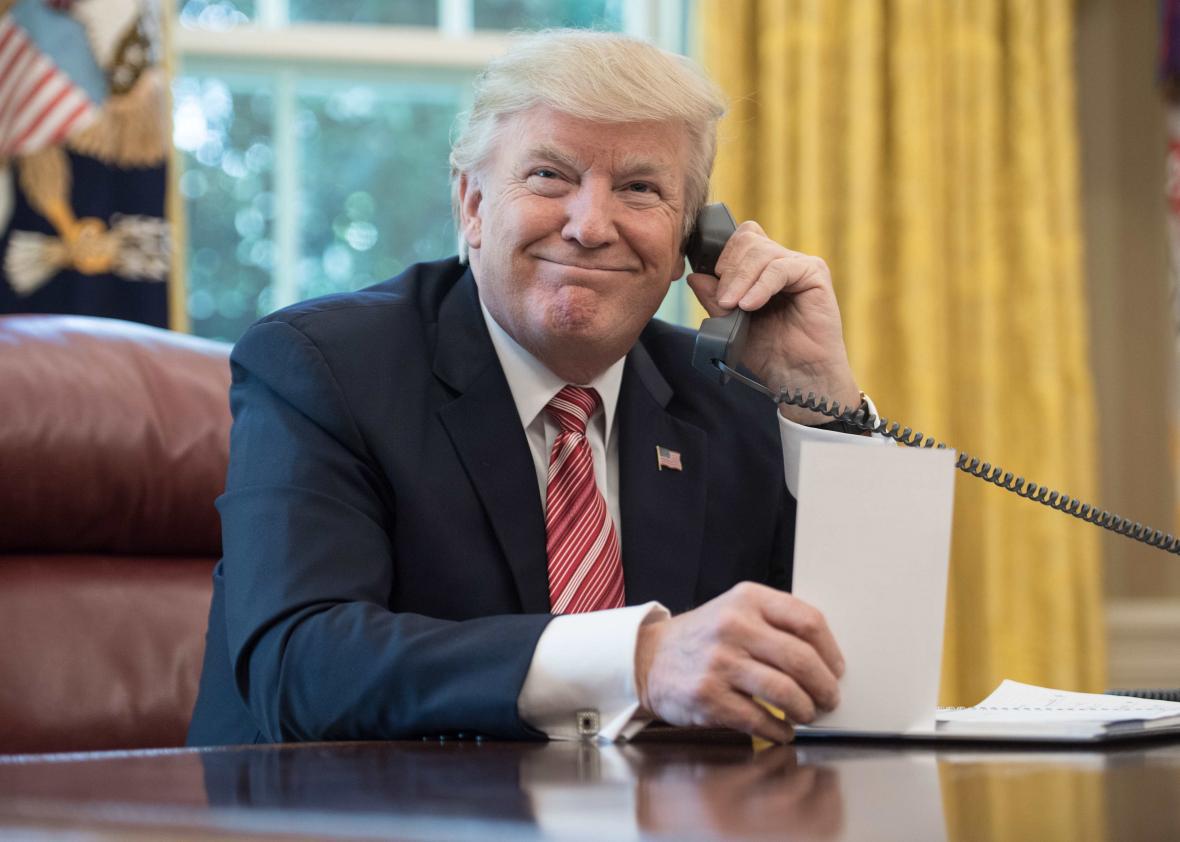On Monday, the Supreme Court issued what has been billed as a split decision on Donald Trump’s ban on immigration from six majority-Muslim countries. The court kept the ban in place for those who couldn’t prove a “bona fide relationship with a person or entity in the United States.” As Wired noted, since most visitors from the six affected countries generally travel on visas that require proof of these relationships, the ban should be considered null and void for most potential travelers. That is, if the administration abides by the spirit of the opinion.
That’s a big if, though. Given its history, it seems likely the White House will use the ambiguity in the Supreme Court’s order to stretch the boundaries of what’s considered a “bona fide relationship with a person or entity in the United States.”
The court’s opinion gives very limited guidance regarding what these relationships entail, pointing specifically to the plaintiffs in these court challenges:
A foreign national who wishes to enter the United States to live with or visit a family member, like Doe’s wife or Dr. Elshikh’s mother-in-law, clearly has such a relationship. … The students from the designated countries who have been admitted to the University of Hawaii have such a relationship with an American entity. So too would a worker who accepted an offer of employment from an American company or a lecturer invited to address an American audience.
Pratheepan Gulasekaram, a professor of immigration and constitutional law at Santa Clara University School of Law, told me that H-1B temporary worker visas, agricultural worker visas, and student visas would all plausibly fall in the category of requiring a “bona fide relationship with a person or entity in the United States.” Perhaps the only groups of travelers that don’t meet that standard are people with tourist visas and some refugees. Even those on tourist visas, though, often obtain them to visit family members. “It’s very difficult to get a tourist visa from Iran to begin with. It’s not something that is handed out very easily,” says Jayashri Srikantiah, the founding director of Stanford Law School’s Immigrants’ Rights Clinic. If Trump follows the court’s ruling, then, refugees—who may or may not have such family connections—will likely be the primary group affected. “I don’t think you’re talking about a large number of people,” Srikantiah told me.
But given that Trump described the opinion as an unqualified “unanimous” victory, it’s likely the White House will want to find a way to take a more expansive view of the Supreme Court’s ruling. The administration could do that by having the Department of Homeland Security and the State Department issue a “guidance memorandum” to Customs and Border Patrol agents and consular officials on how precisely to implement the order. The issuance of such a memorandum could effectively shield any decision-making on the issuance of visas from the reaches of the courts due to the doctrine of consular nonreviewability.
That legal theory, which was upheld in the 2015 Supreme Court case Kerry v. Din, gives consular officers broad leeway to reject individual visa applicants and to face limited judicial review. Because the second travel ban was originally so broad, it was easy to identify a potentially unconstitutional basis for the denial of visas to travelers from the six affected countries—namely, discrimination against Muslims. Now that the ban has been limited to people from those countries who don’t have a “bona fide” connection, State Department officials will likely be able to make decisions behind closed doors without having to face scrutiny for those decisions in court.
“It just gets much more in the weeds when you have factual determinations that are made by consular officers,” Srikantiah told me. “Those are harder decisions to review because they’re discretionary decisions by a consular officer” who is evaluating applicants on an individualized basis. “That’s just unfortunately how this system works,” she added. “Even under the Bush administration, many people from certain countries had a very hard time coming to the U.S. because of these consular decisions that are very, very, very difficult to review.”
If Trump hides the implementation of the newly sanctioned executive order behind the bureaucratic windows of consular offices around the world, then he may be right that this is a substantial victory. In that case, the Supreme Court will have helped turn an unconstitutional Muslim ban into one that’s impervious to judicial review.
